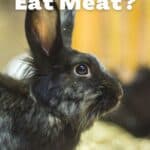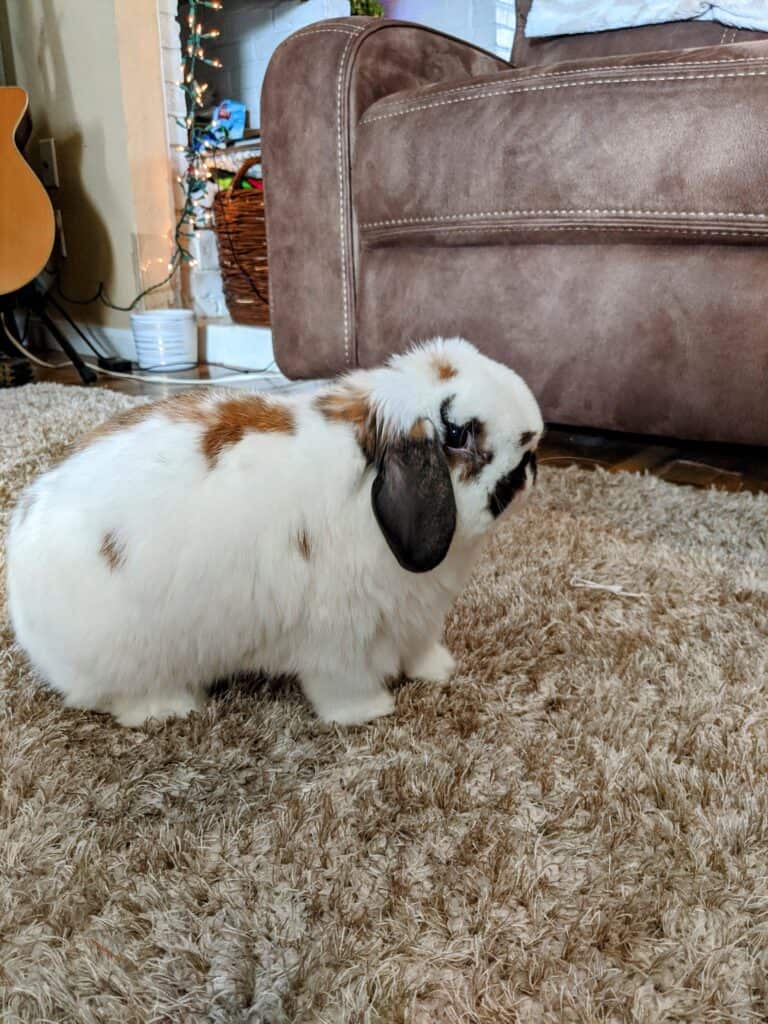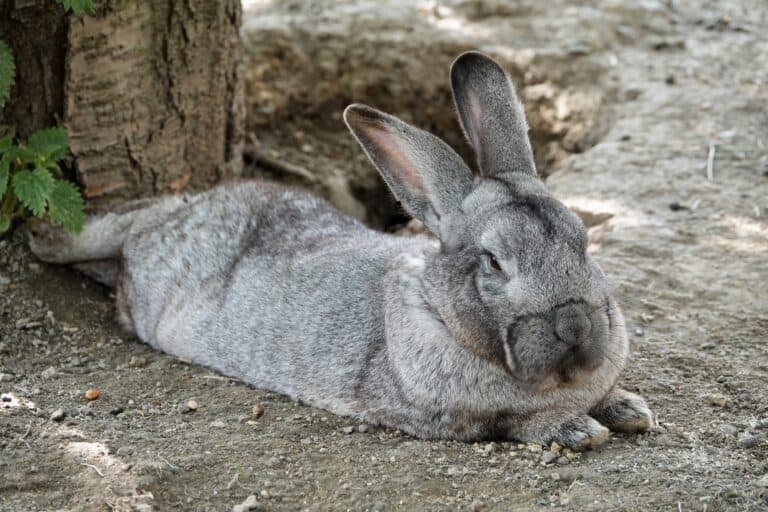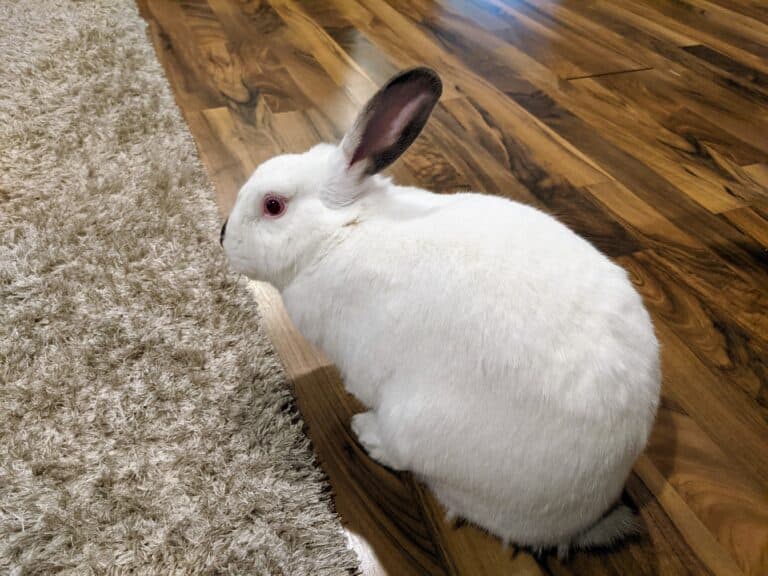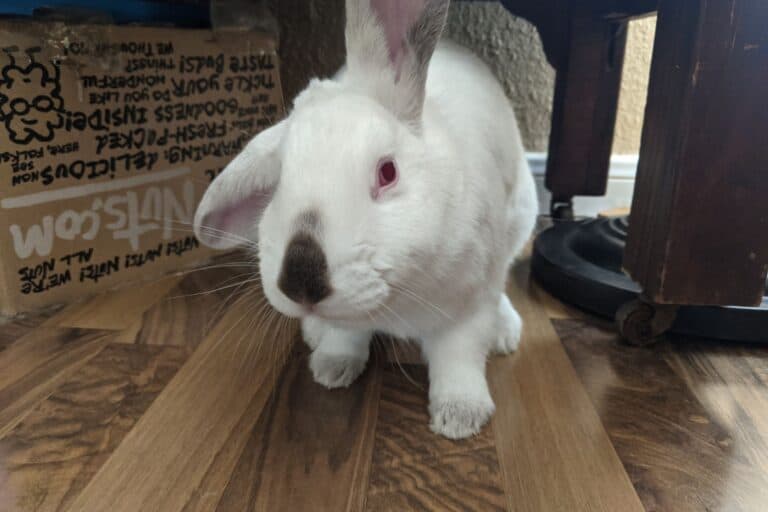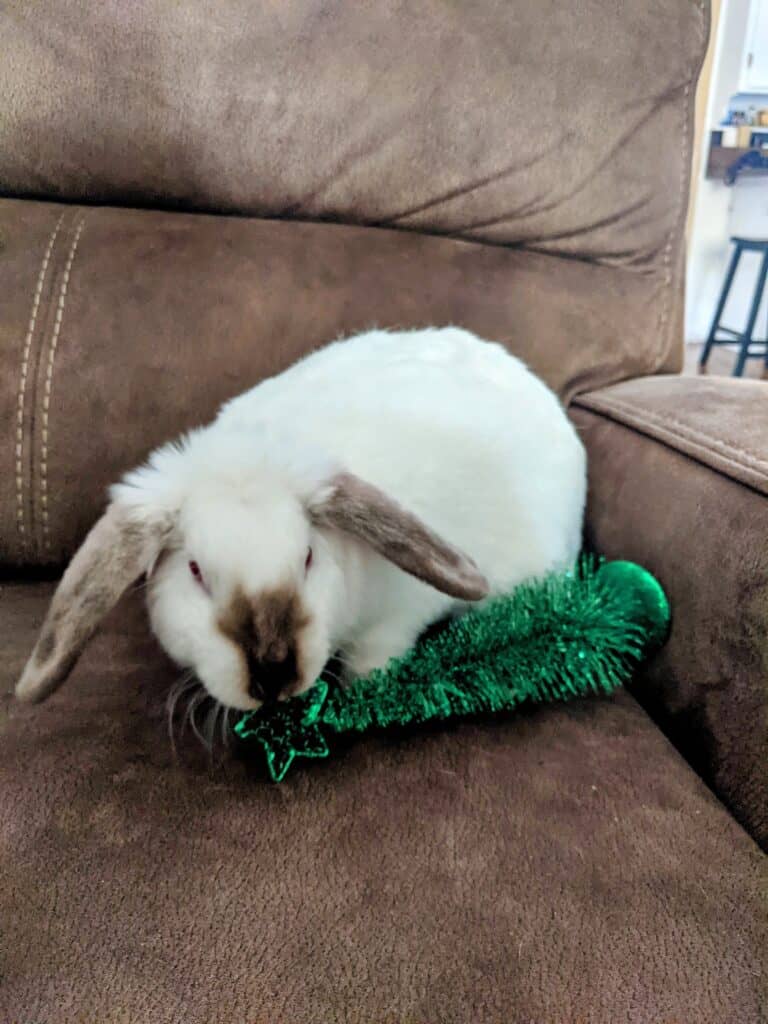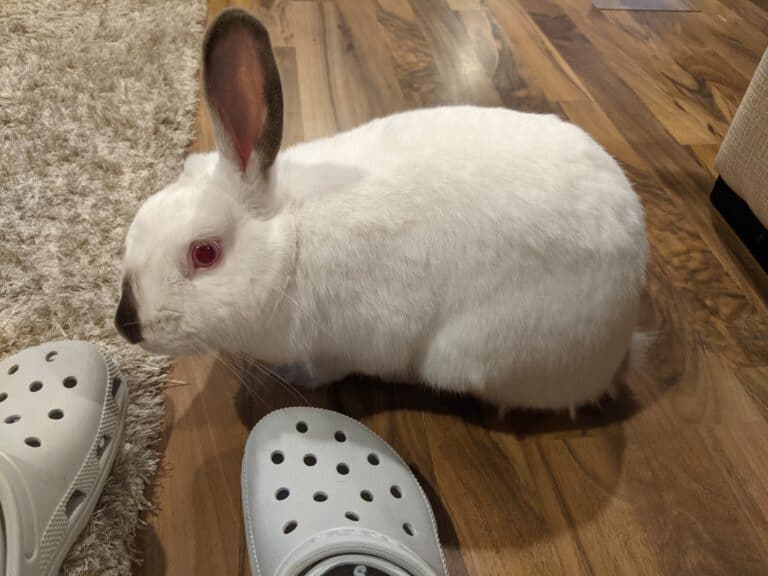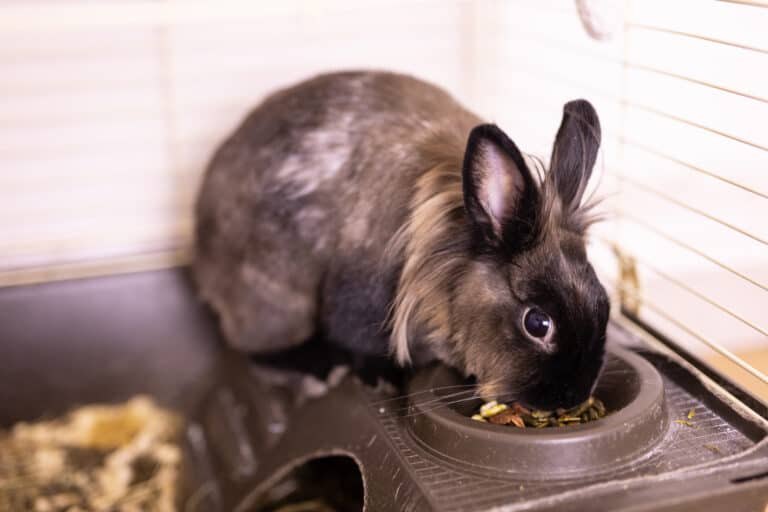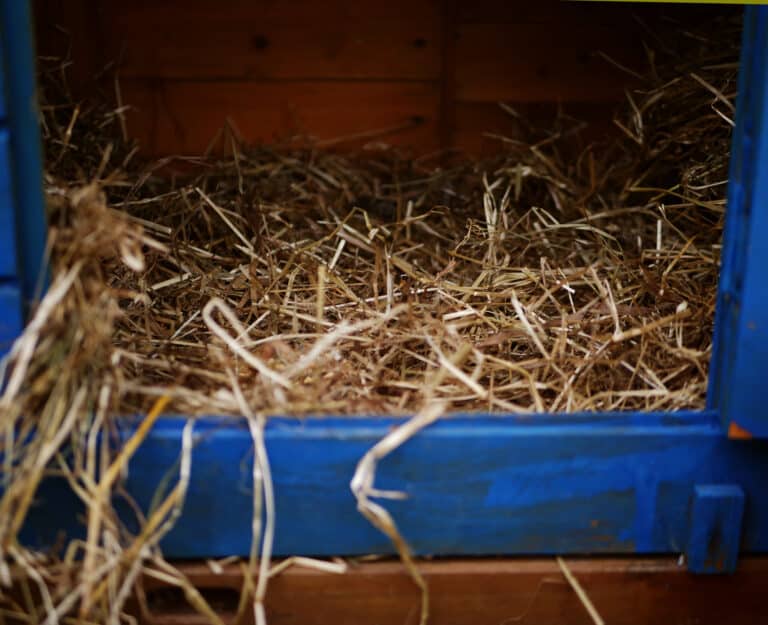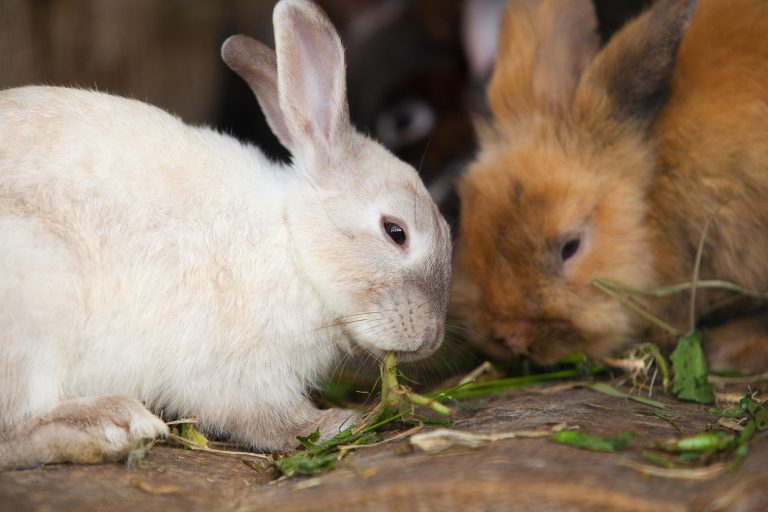Do Rabbits Eat Meat?
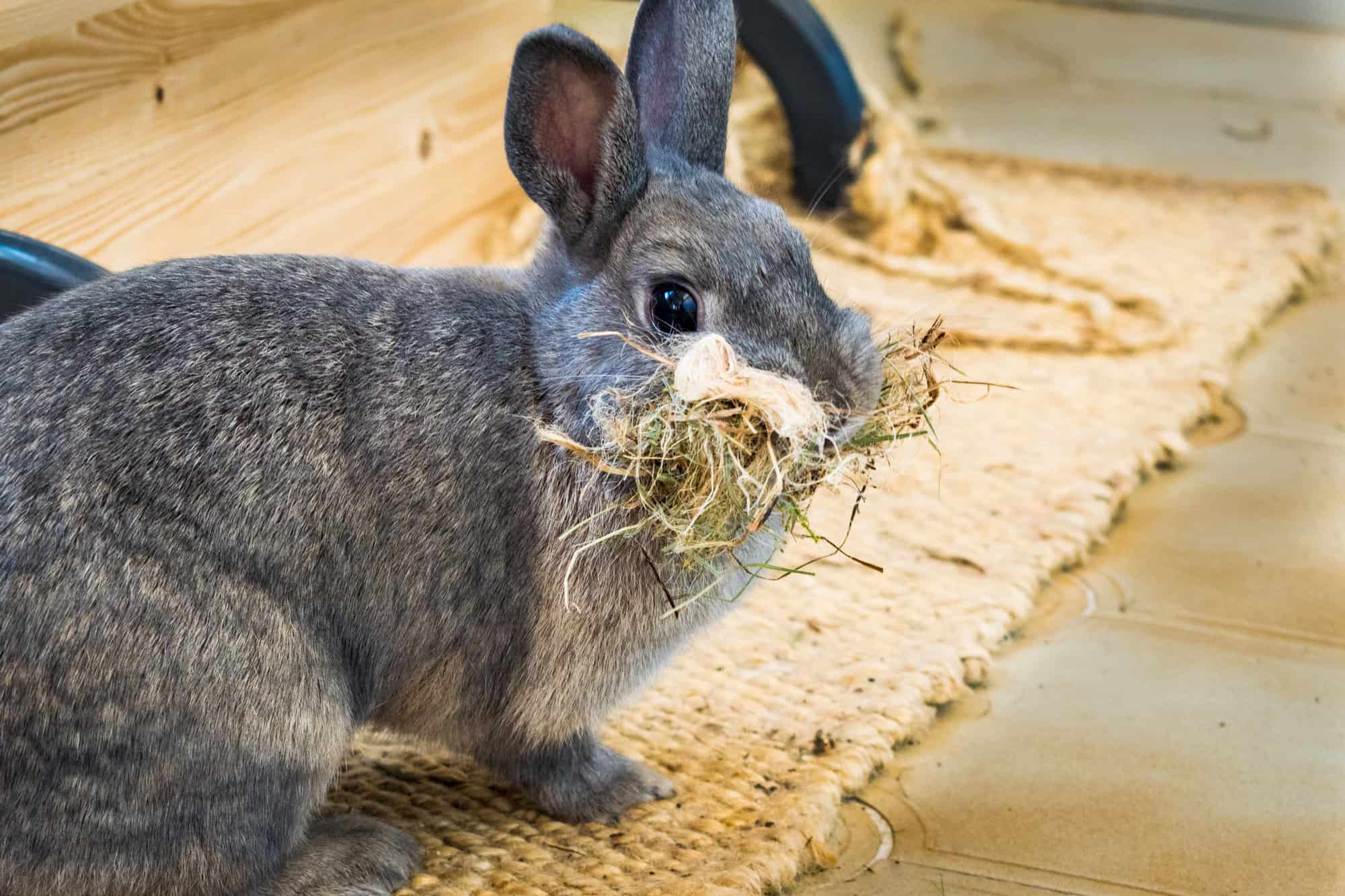
Most of us eat meat regularly. Because it’s a part of our diet, we sometimes feed it to our fur babies as well. Cats and dogs are meat-eaters, so giving them some of the tasty tidbits isn’t likely to harm them. But what about our buns? Do rabbits eat meat? Well, they probably will. Rabbits will eat almost anything, after all. But because they’re herbivores, you may want to know if feeding your pet meat will impact his health.
Can Rabbits Eat Meat?
Rabbits sometimes eat meat in the wild, especially when they’re starving. That’s part of their survival mechanism. They’re even known to eat their young, although such cases are rare in the domestic setting. Some rabbit owners also claim that their pets ate the meat they offered.
However, we mentioned that rabbits are herbivores. As such, even though they will eat meat if they get access to it, they can get sick because their digestive system can’t process the food material.
Reasons Why They Shouldn’t Eat Meat
Even rabbits in the wild thrive on a vegan diet. They may eat meat when they can’t feed on anything else, but they mostly live on plants and grass. Pet buns aren’t that much different from their wild kin regarding the food they need, which means that meat doesn’t have any place in their nutritional regimen. Here’s why.
They Have Sensitive Digestions
Sudden changes in diet or being fed new food in large quantities often lead to digestive issues. What more if you give your bun something his system can’t handle? Having loose stools may be the only consequence of ingesting a small amount of meat. But you risk killing your pet if you make meat a regular part of his meal.
They Need Plenty of Fiber to Survive
The fiber in plants and hay helps push the food rabbits eat through their digestive tract. This lessens the risk of gastrointestinal (GI) stasis. GI stasis is a potentially fatal health issue where the food stops moving through your bun’s gut, causing an imbalance of the bacteria in his intestines. Chewing on fibrous material also helps whittle down your rabbit’s ever-growing teeth. Meat doesn’t contain a significant amount of fiber, so it doesn’t offer any added benefits to your pet.
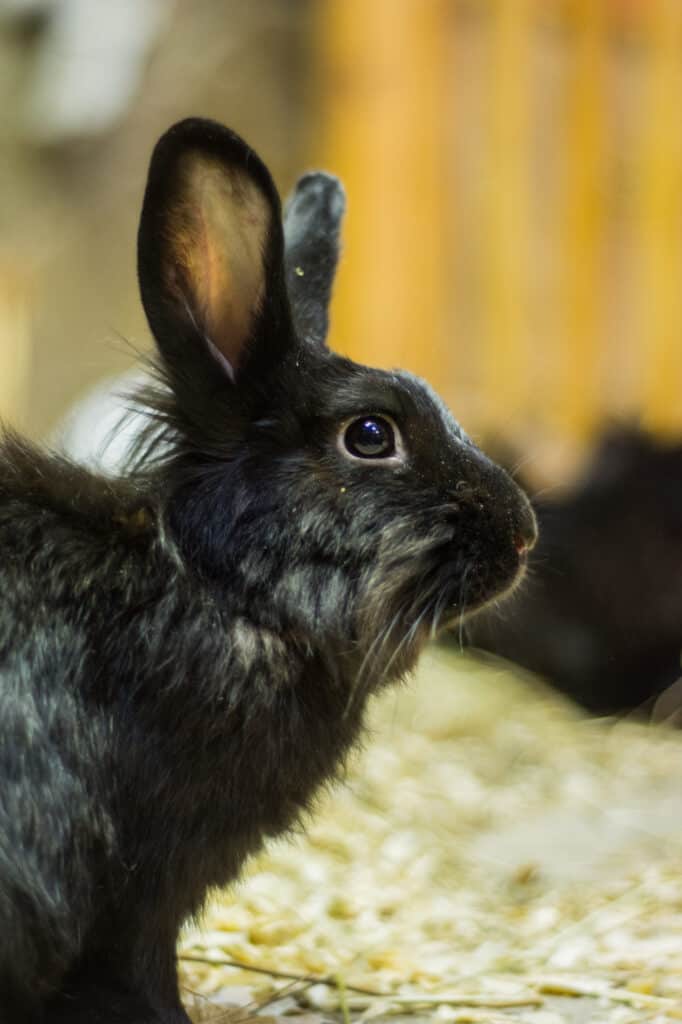
The Risks of Feeding Meat to Rabbits
Because their bodies aren’t geared to processing the substances found in meat, eating this type of food poses health risks to rabbits. They may develop the following ailments.
Deadly Diarrhea
Eating just a few tidbits of meat can cause loose stools in rabbits. That’s because meat contains too much fat, protein, and other nutrients that buns require only in limited amounts. Moreover, it has very little fiber, which rabbits need in large quantities to maintain the proper functioning of their digestive system.
GI Stasis
A high-protein diet can lead to GI stasis, a condition where the movement of a rabbit’s digestive system slows down, leading to the impaction of food matter in the intestines. In some instances, the food movement stops completely. This disruption in the normal functioning of the digestive system could lead to organ failure and, sometimes, even death.
Uneaten Cecotrophes
Rabbits produce two types of droppings, the round, dry ones and cecotropes, which are made in the digestive tract. It may sound gross, but buns eat the cecotropes, which contain additional nutrients.
Eating meat often leads to softer cecotropes resulting from the food’s high fat and protein content. Normal cecotropes look like peas. They’re softer than regular poop but not too mushy. Rabbits don’t like eating squishy fecal material, which they produce when they feed on meat. Buns need to consume their cecotropes; otherwise, they’ll miss out on the essential nutrients those unique droppings provide.
What to Do If Your Rabbit Ate Meat
Rabbits are such adventurous creatures, so we can understand how your pet can sometimes find some meat to feed on. Don’t panic if you find your fur baby happily snacking on a piece of bacon or ham. Although they shouldn’t consume that type of food, a small amount isn’t likely to have catastrophic results. Still, you can do the following to help your pet.
- Observe your fur baby for signs of illness, behavioral changes, or changes in the poop.
- Give your bun extra servings of hay. The fiber in hay can help push the meat through his digestive tract and flush it out of his system.
- Call your vet for advice or bring your pet over to have him checked out for any adverse reactions.
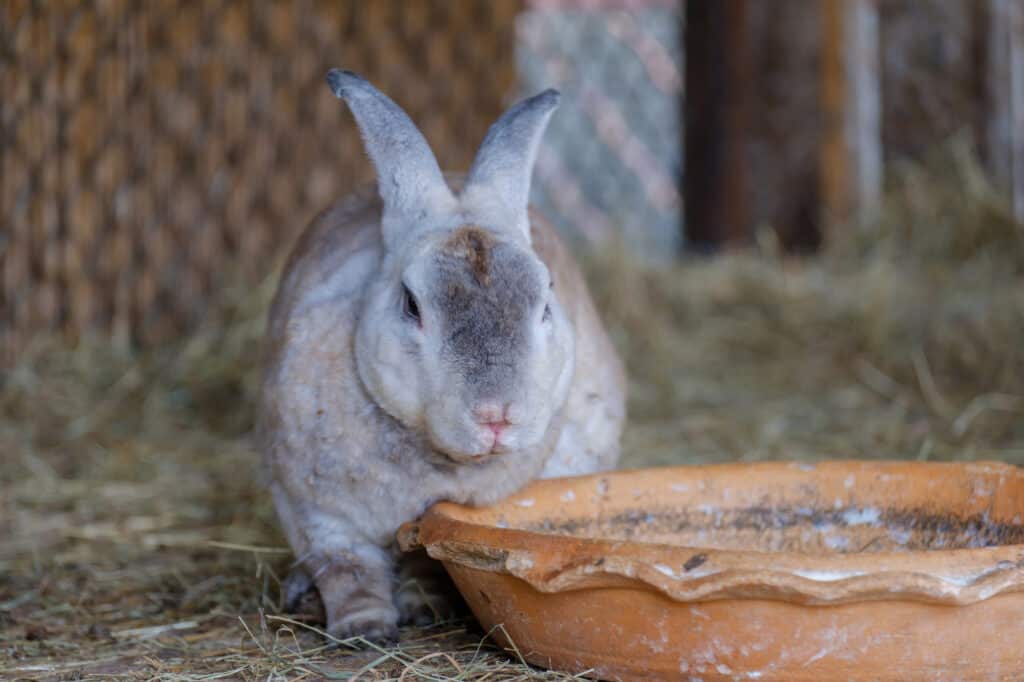
Why Do Some Rabbits Eat Their Young?
We mentioned that wild rabbits sometimes eat their young as part of their survival tactics. Such an event rarely happens with domesticated buns. Still, you may wonder why after discovering that rabbits don’t eat meat. Here are some possible reasons:
- A bun who eats her first litter may have gotten confused and thought that the babies are part of the afterbirth, which rabbits eat. This will often happen only once. With her next litter, a rabbit will know better.
- Mother rabbits may eat a stillborn baby bunny or kit.
- A scared rabbit can sometimes eat her young before running away. Eating the kits is her way of removing any evidence of her presence.
Other Foods Rabbits Shouldn’t Eat
Meat isn’t the only food you should avoid giving to rabbits. Here are some more items buns shouldn’t feed on.
- Human treats
- Crackers
- Chocolates
- Cereal
- Corn
- Legumes
- Cabbage
- Sugar
- Yogurt
- Pasta
- Food for other pets, such as cat food and hamster food
What Should Rabbits Have in Their Diet?
If you can give only two things to your bun, go for hay and fresh water. These two should be available to your pet 24/7. Other items that rabbits needs are:
- Veggies: Rabbits older than 3 months will benefit from eating small portions of fresh, leafy greens and other veggies. Particularly good for buns are romaine lettuce, carrot tops, cilantro, and turnip greens.
- Fruits: Bananas, grapes, watermelon, and pineapples are examples of fruits that rabbits can eat. However, even though plenty of fruits are safe for your bun, consider these food items as treats and serve only a small portion once or twice a week.
- Pellets: Young buns will benefit the most from pellets as this food contains concentrated amounts of nutrients that baby rabbits need to develop properly.
Do rabbits eat meat? They don’t do so as a general rule. However, buns who gain access to meat might eat it because they don’t know any better. To keep your fur baby healthy, follow a rabbit’s natural diet in the wild as much as possible. That means plenty of hay and no meat.
More Rabbit Posts!
We hope you enjoyed this post! If you did, will you give it a share or two 🙂 Thank you! ~from Every Bunny Welcome

